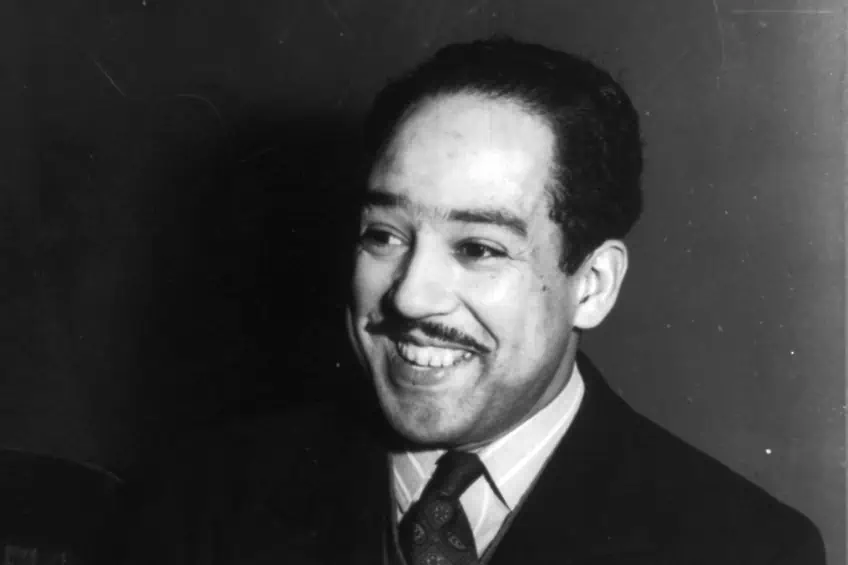Most Famous Poets – The 16 Greatest Figures Throughout History
It is fascinating to note how many ideas and phrases that we use today have been shaped by famous poets. At many a rally or protest, there have been poets using their voices to support a cause. Well-known love songs that get stuck in our heads are filled with romantic poetry set to music, or have been inspired by specific poems, and many lines have been used in films. Whether you are an avid poetry reader or not, poetry seeps through everything, impacting our lives in ways we may not even notice. Below, we have listed some of the most famous poets in history, and discussed what makes them special. So, let’s jump in!
What Makes a Poet Popular?
The creation of popular poets is dependent on a few ingredients, two of them being repetitiveness and exposure. It would make sense to think that the more the public hears or reads about someone, the more famous that person would get. William Shakespeare (1564-1616), for example, is famous not just because he was an amazing poet and playwright during his day (which he was), but because numerous films, books, and songs have used his lines, and have been based on entire plays. The work of other poets have been featured in films too. ‘O Captain! My Captain!’ by Walt Whitman was used in Dead Poets Society (1989), ‘Spring Morning’ By A. A. Milne was in Kindergarten Cop (1990), and ‘Funeral Blues’ By W. H. Auden was featured in Four Weddings and a Funeral (1994).
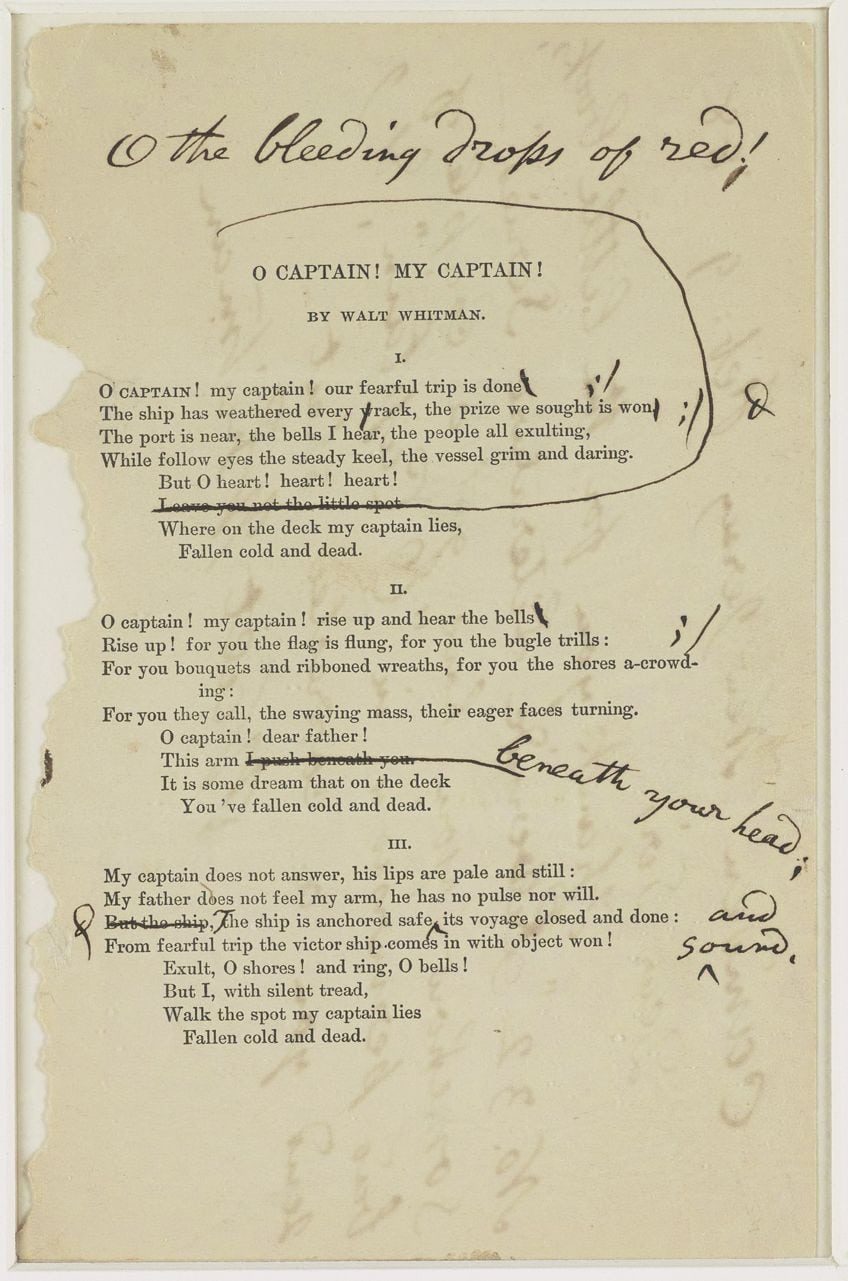
Another thing to note is publicity; where was the poetry published and by whom? The right publishing house can do wonders in a writer’s reputation. As seen above, the coverage of material is also important in making a poet excel. The more eyes and ears are met with a writer’s poetry, the further their popularity will spread. In the past, this would have been done through publications and live performances. These days, the internet is a useful tool in spreading your art. With that said, there are a few things that great poets have in common.
We have listed some of these points below.
- What great poets have in common is that their poetry impacted people’s hearts. A poem can be well-written, but technical merits alone are not going to make a poem popular. Much of its worth is owed to the emotional connection that is formed between the poem and its readers.
- There is something original in their poetry that makes them stand out amongst other poets. This ‘original’ thing may be their approach to what they are writing about, their willingness to tackle important subjects that are or were considered taboo, their choice in style, and so on.
- A poet’s love for literature is a characteristic that lends itself to their own work. If you are passionate about literature, this shows a level of devotion not only to your own poetry, but the work of others as well. This helps to find understanding amongst poets.
- Another common trait amongst the greatest poets of all time is their dedication to their work. They pursue their love for poetry wholeheartedly and with tenacity.
16 of the Most Famous Poets Ever
There are many famous poets in history, and we cannot possibly list them all in this article, but we have managed to put together a list below of 16 of the greatest poets of all time, along with some information about them, their famous quotes, and most famous poem titles.
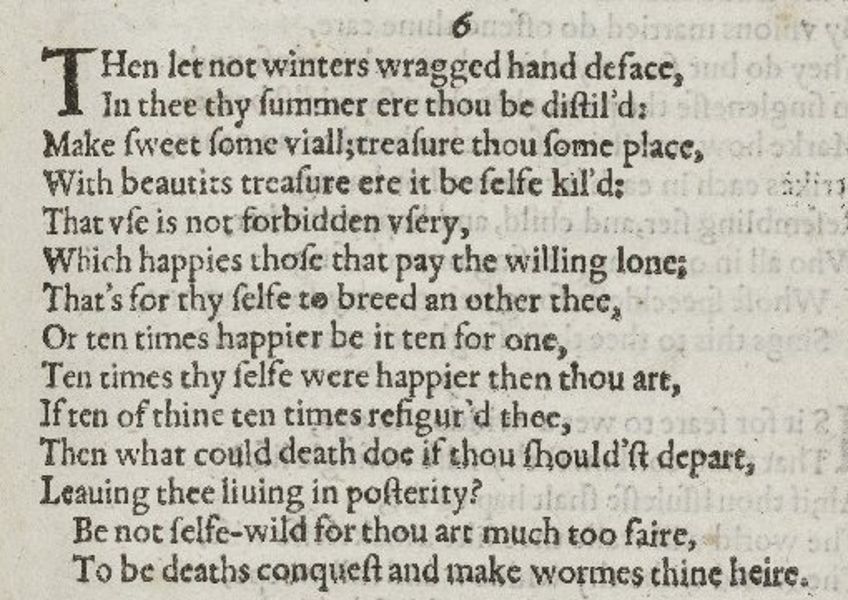
Homer (c. 9th or 8th century BCE)
| Nationality | Ionian |
| When Did They Live | 9th or 8th century BCE |
| Famous Poem | Iliad (c. late 8th or early 7th century BCE) |
| Famous Quote | “Everything is more beautiful because we’re doomed. You will never be lovelier than you are now. We will never be here again.” |
| Interesting Fact | Scholars are not sure whether Homer actually existed. He was a poet of the oral tradition and his work may have been transcribed by other people. |
Considered one of the greatest poets of all time, Homer (c. 9th or 8th century BCE) was born in Ionia, ancient Greece, and is attributed with writing the two foundational epic poems of Greek literature, the Iliad and the Odyssey (c. late 8th or early 7th century BCE). It is uncertain whether he was the actual author of these poems, as little is known of him beyond that his name has been attached to shaping these poems by the Greeks of antiquity.
If he is indeed the writer of these epic poems, Homer is one of the greatest poets in the world and greatly influenced Western standards and ideas through these two works.
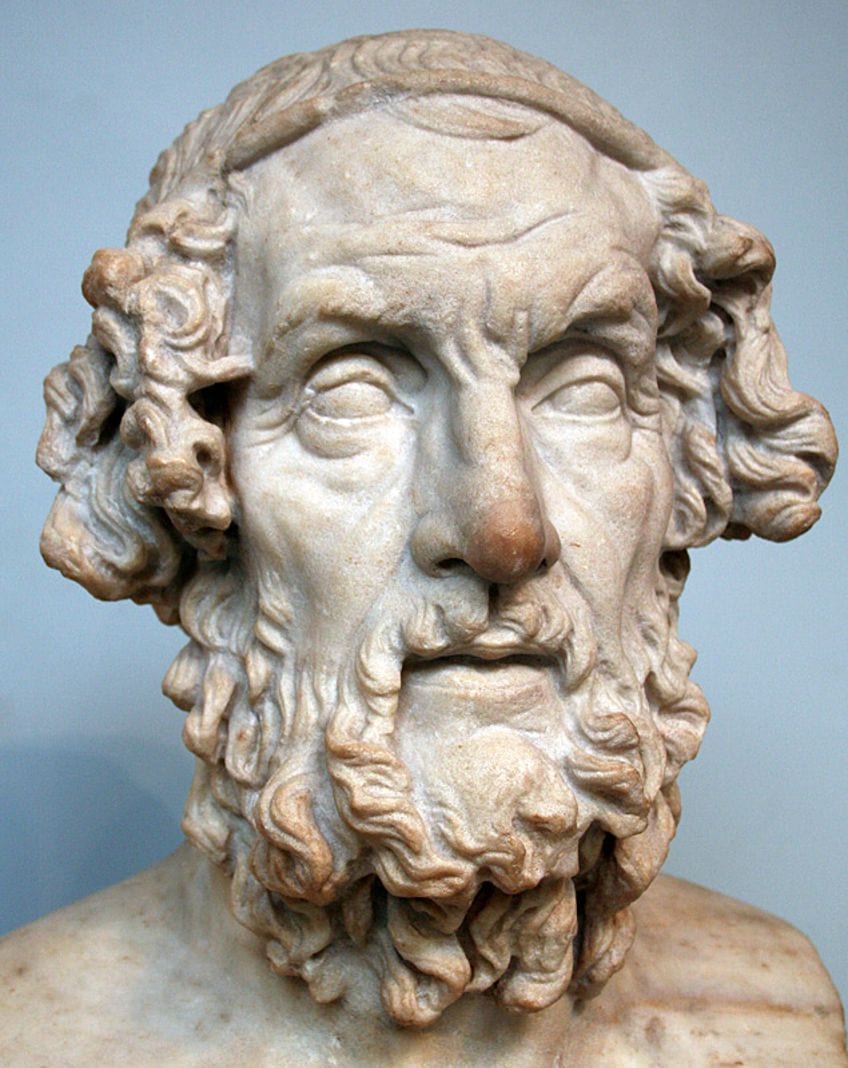
Dante Alighieri (1265 – 1321)
| Nationality | Italian |
| When Did They Live | 1265 – 1321 |
| Famous Poem | The Divine Comedy (1321) |
| Famous Quote | “The darkest places in hell are reserved for those who maintain their neutrality in times of moral crisis.” |
| Interesting Fact | Most literature and poetry before Dante were written only in Latin, until Dante introduced the use of vernacular language. |
The major Italian poet, Dante Alighieri (1265-1321) was the first to write in Italian, and fought for the language to be on an equal level with Latin in literature. Not only was Dante a poet, but he was also a philosopher and politician. Much of Dante’s life was spent in exile from Florence, his native city, because of his political activities. Dante wrote what is considered one of the greatest works of Italian literature, The Divine Comedy (1321), which has influenced artworks, such as The Garden of Earthly Delights (1503-1515) by Hieronymus Bosch (1450-1516), and inspired novels like Inferno (2013) by Dan Brown (1964-present).
These examples are amongst other films, music, and video games.
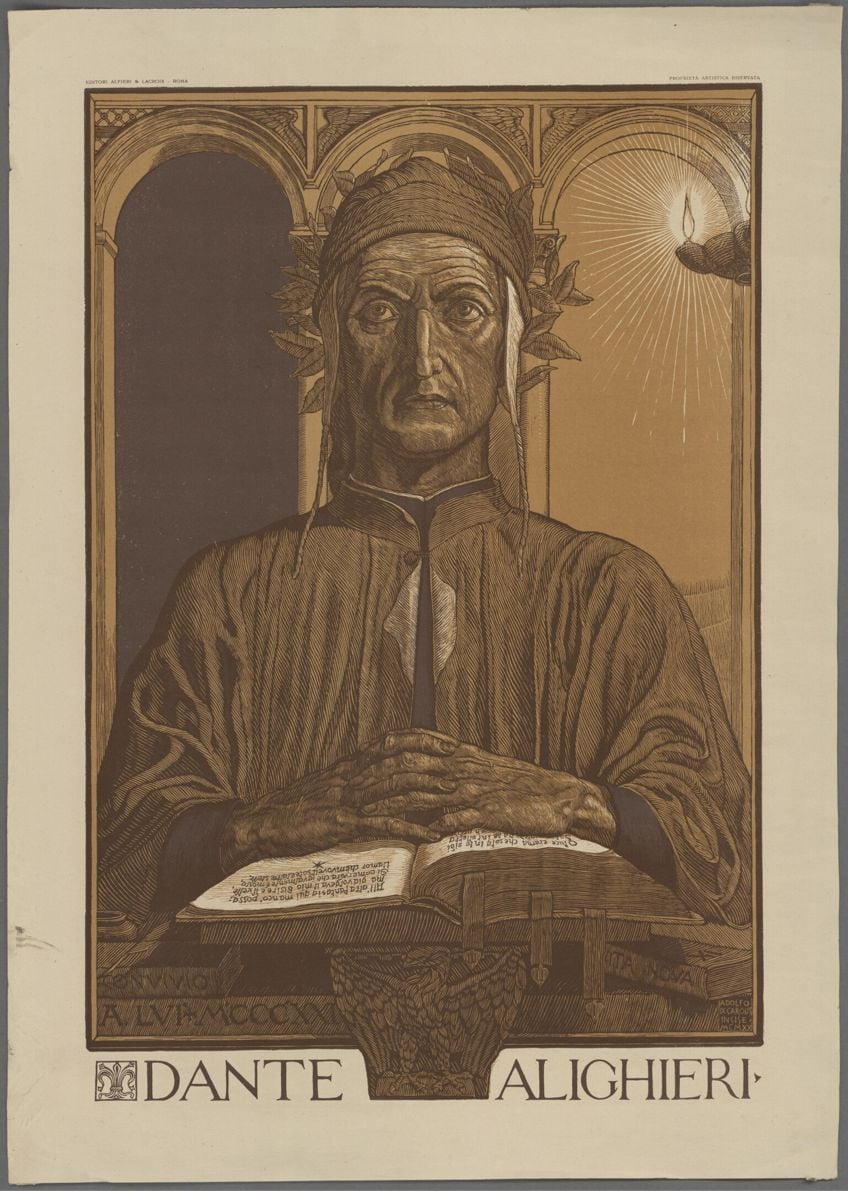
William Shakespeare (1564 – 1616 )
| Nationality | British |
| When Did They Live | 1564 – 1616 |
| Famous Poem | Sonnet 18: Shall I Compare Thee to a Summer’s Day (1609) |
| Famous Quote | “To be, or not to be: that is the question.” |
| Interesting Fact | Shakespeare’s real name was Gulielmus Shakespeare, according to documentation from his baptism in the year 1564. |
One of, if not the, most famous poet in English literature is William Shakespeare (1564-1616). Born in Warwickshire, he traveled to London where his career took flight. Shakespeare was not only a poet, but was also an actor and a playwright, and was involved in founding the company, The Lord Chamberlain’s Men, for which he wrote regular plays. Through each character in his works, a rich understanding of human nature is shown. His stories are timeless and have inspired many films and novels. Although he is very well-known for his plays, Shakespeare was a poet first, and is the most famous practitioner of the English sonnet. Having published two narrative poems and 154 sonnets, he is one of the world’s most influential poets.
These works, including his 38 plays, have been celebrated for over 400 years and still resonate with audiences today.
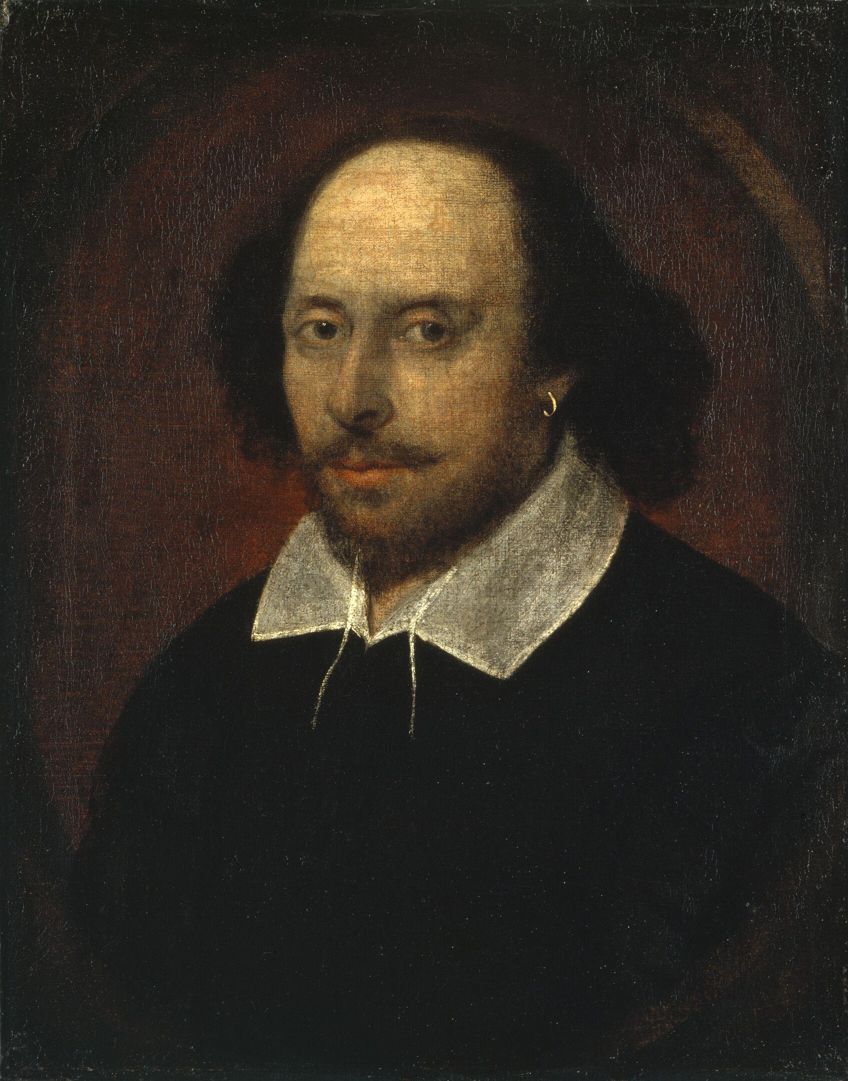
William Blake (1757 – 1827)
| Nationality | British |
| When Did They Live | 1757 – 1827 |
| Famous Poem | The Tyger (1794) |
| Famous Quote | “No bird soars too high if he soars with his own wings. To see a world in a grain of sand and heaven in a wild flower. Hold infinity in the palm of your hand and eternity in an hour. The fool who persists in his folly will become wise.” |
| Interesting Fact | Blake left school when he was ten years old, after learning to read and write, and was then received schooling from his mother. |
An English painter, printmaker, and poet, William Blake (1757-1827) went unrecognized during his lifetime, but now receives the recognition he deserves, and is seen to be an important figure in the history of poetry and Romantic art. Apart from living in Felpham for three years, he lived in London for most of his life, and created a diverse collection of works.
His art and writing has philosophical and mystical undercurrents, and he illustrated his poetry and writings himself.
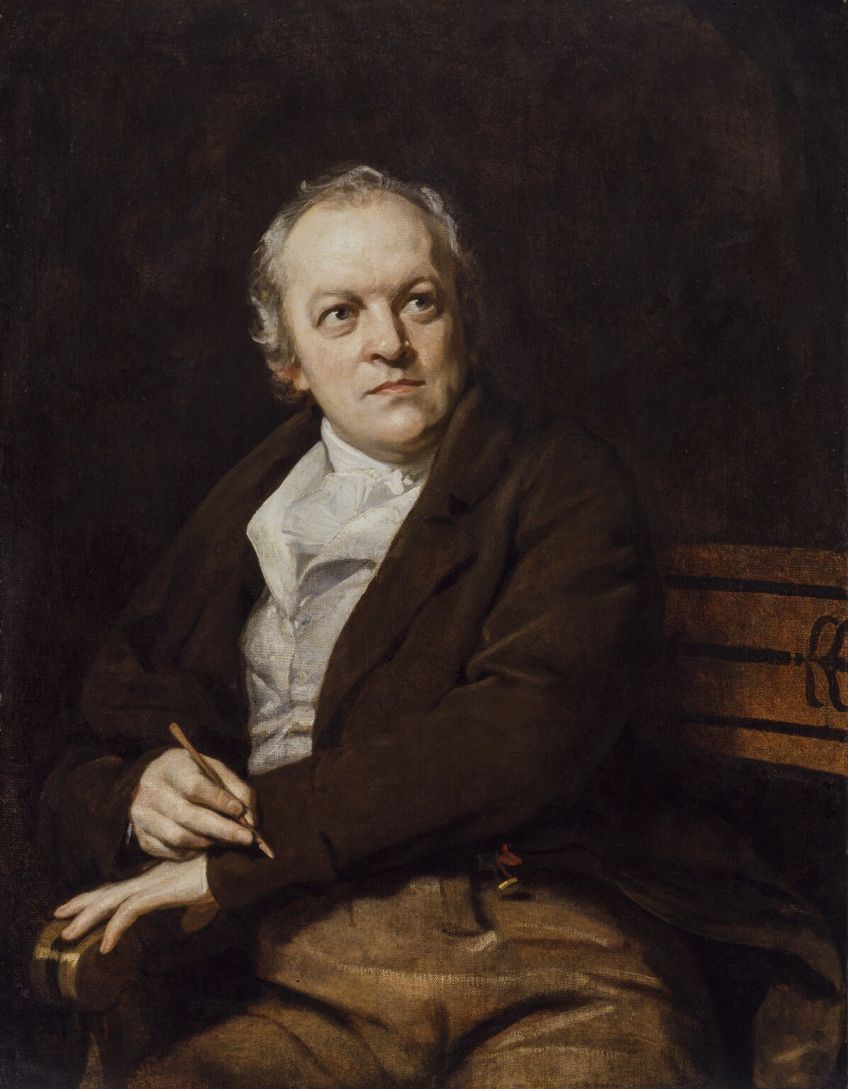
William Wordsworth (1770 – 1850)
| Nationality | British |
| When Did They Live | 1770 – 1850 |
| Famous Poem | I Wandered Lonely as a Cloud (1807) |
| Famous Quote | “The best portion of a good man’s life: his little, nameless unremembered acts of kindness and love.” |
| Interesting Fact | Wordsworth’s famous poem, I Wandered Lonely as a Cloud (1807) was not written entirely by himself, but his wife and childhood friend, Mary Hutchinson had added a few lines. |
William Wordsworth (1770-1850) was a British poet and considered by many to be one of the fathers of the English Romantics. He shows a deep appreciation for the natural world in his poetry and people’s everyday lives. He journeyed to France to witness the French Revolution firsthand, as he was a passionate supporter. He was involved in activism in England for the common people. After France, he returned home to this duty and to his poetry. In 1843, Wordsworth was appointed poet laureate of England and held the position until he passed away.
Apart from I Wandered Lonely as a Cloud (1807), he is best known for Lyrical Ballads (1798), which he wrote alongside Romantic poet Samuel Taylor, and The Prelude (1850).
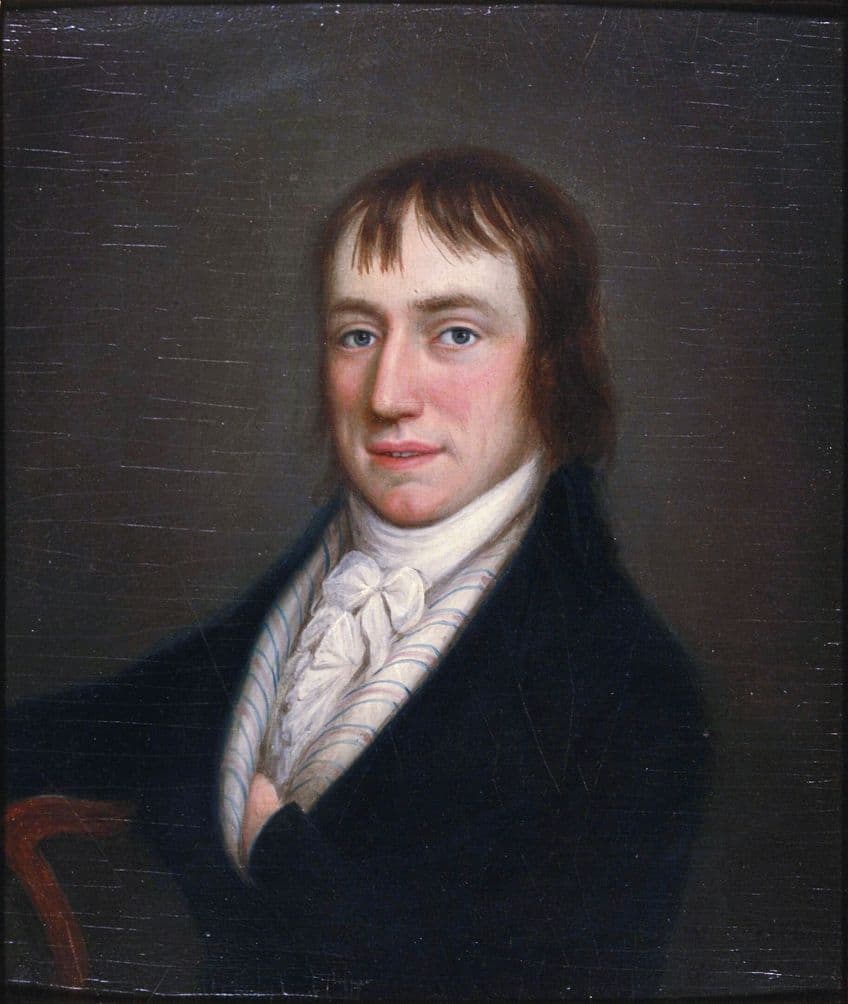
John Keats (1795 – 1821)
| Nationality | British |
| When Did They Live | 1795 – 1821 |
| Famous Poem | Ode to a Nightingale (1819) |
| Famous Quote | “ ‘Beauty is truth, truth beauty,’ – that is all ye know on earth, and all ye need to know.” |
| Interesting Fact | Keats first studied medicine before discovering his love for poetry. |
John Keats (1795-1821) was an English Romantic poet of the second generation. His career lasted only four years when tuberculosis took him at 25 years old. However, he left a great body of poetry behind. Keats was from a modest family background and first studied medicine, but upon discovering his love for poetry he devoted himself to writing.
Although not successful financially, he is considered to be one of the greatest 19th century poets.
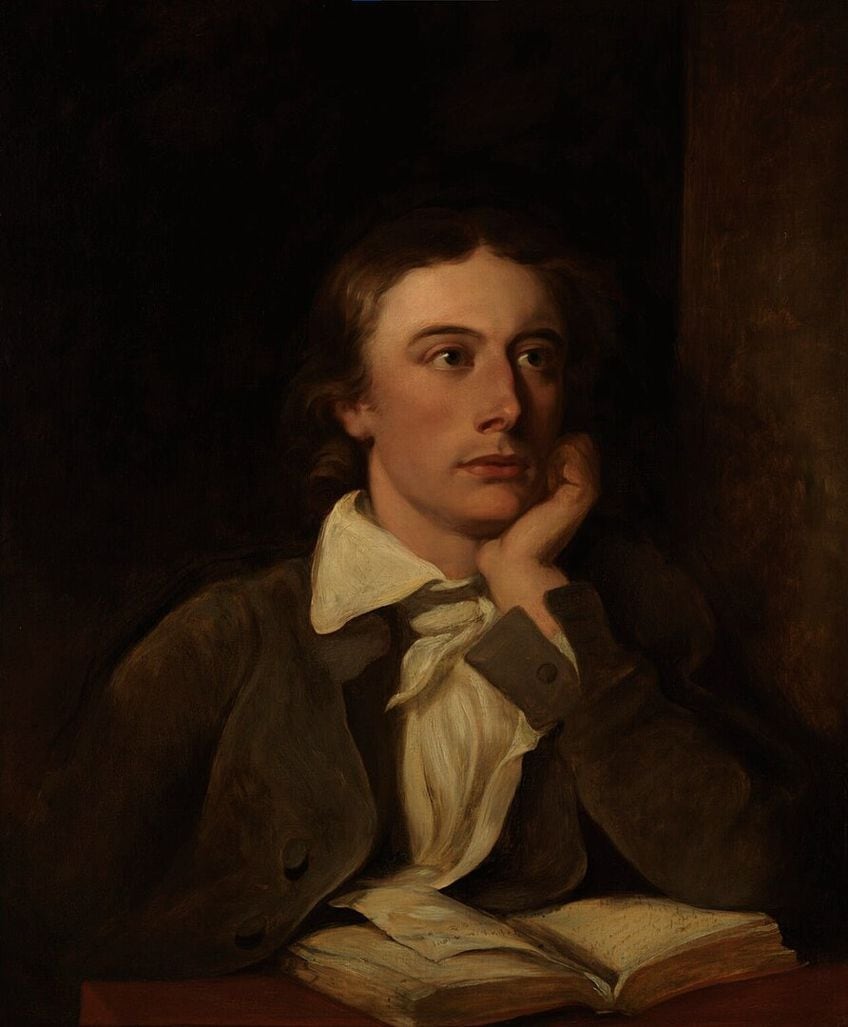
Edgar Allan Poe (1809 – 1849)
| Nationality | American |
| When Did They Live | 1809 – 1849 |
| Famous Poem | The Raven (1845) |
| Famous Quote | “I became insane, with long intervals of horrible sanity.” |
| Interesting Fact | Initially, Poe was going to use a parrot rather than a raven for his famous poem, but chose a raven instead because it better suited the mood he was trying to get across. |
Edgard Allan Poe (1809-1849) was born in America and became very well known for his short stories and poetry. At the age of two, Poe became an orphan and was possibly taken in and schooled by his godfather, but was never formally adopted. Poe had a high-quality education, but he had a turbulent time in early adulthood, building up gambling debts which got him dismissed from the University of Virginia. He was then forced to make a living for himself and worked as a writer and editor for several magazines. Mystery and the macabre were Poe’s most popular genres and resulted in him becoming a leading figure in Gothic fiction and Romanticism in American literature.
Although he saw himself as primarily a poet, Poe made a significant contribution to molding modern prose fiction.
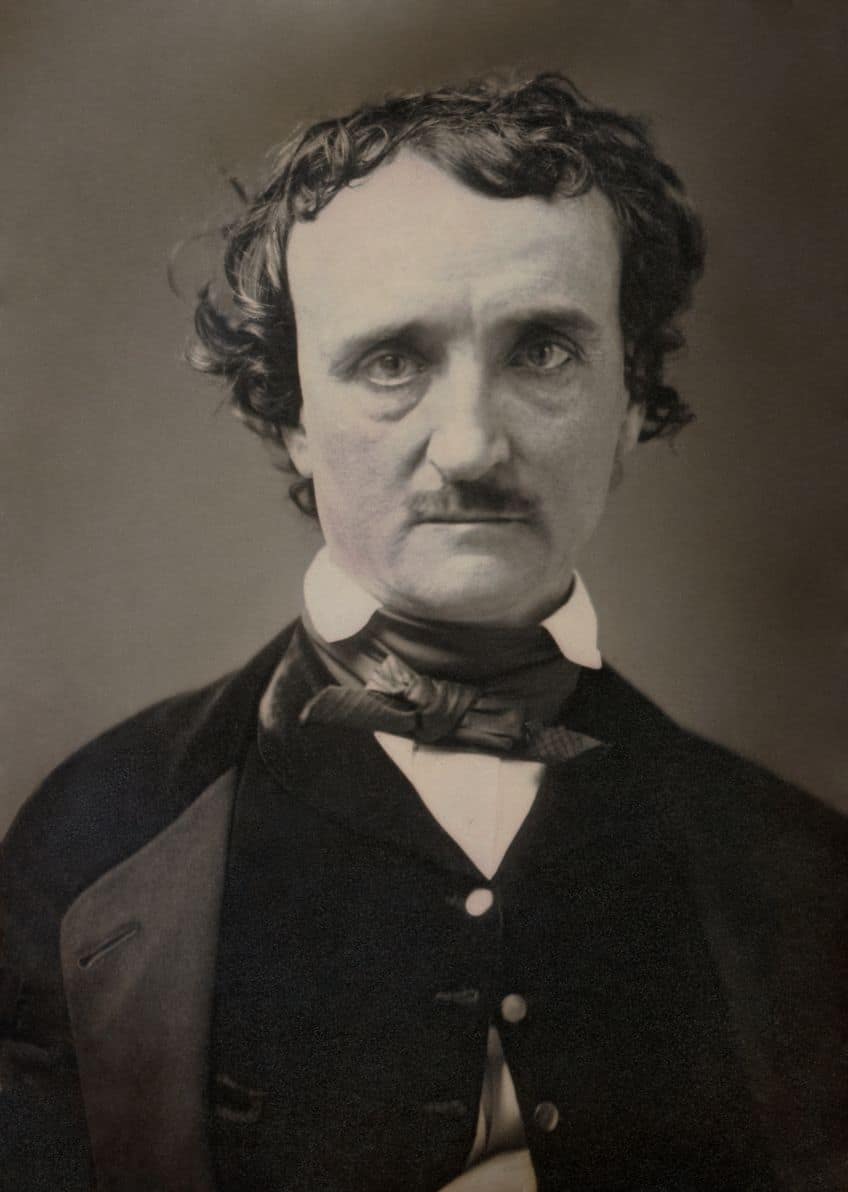
Walt Whitman (1819 – 1892)
| Nationality | American |
| When Did They Live | 1819 – 1892 |
| Famous Poem | Leaves of Grass (1855) |
| Famous Quote | “Keep your face always toward the sunshine – and shadows will fall behind you.” |
| Interesting Fact | Whitman’s family struggled financially and at 11 years old he left school to help contribute. |
Walter Whitman (1819-1892) is a figure of great influence in American literature. Before establishing himself as a poet, Whitman worked as a printer, a carpenter, a publisher, and a journalist. His verse was unconventional and many poems were criticized for being immoral or obscene.
Often called the ‘the father of free verse’, his writings embodied realism and transcendentalism, and celebrated the soul, loss, healing, the self, and the companionship of all people.
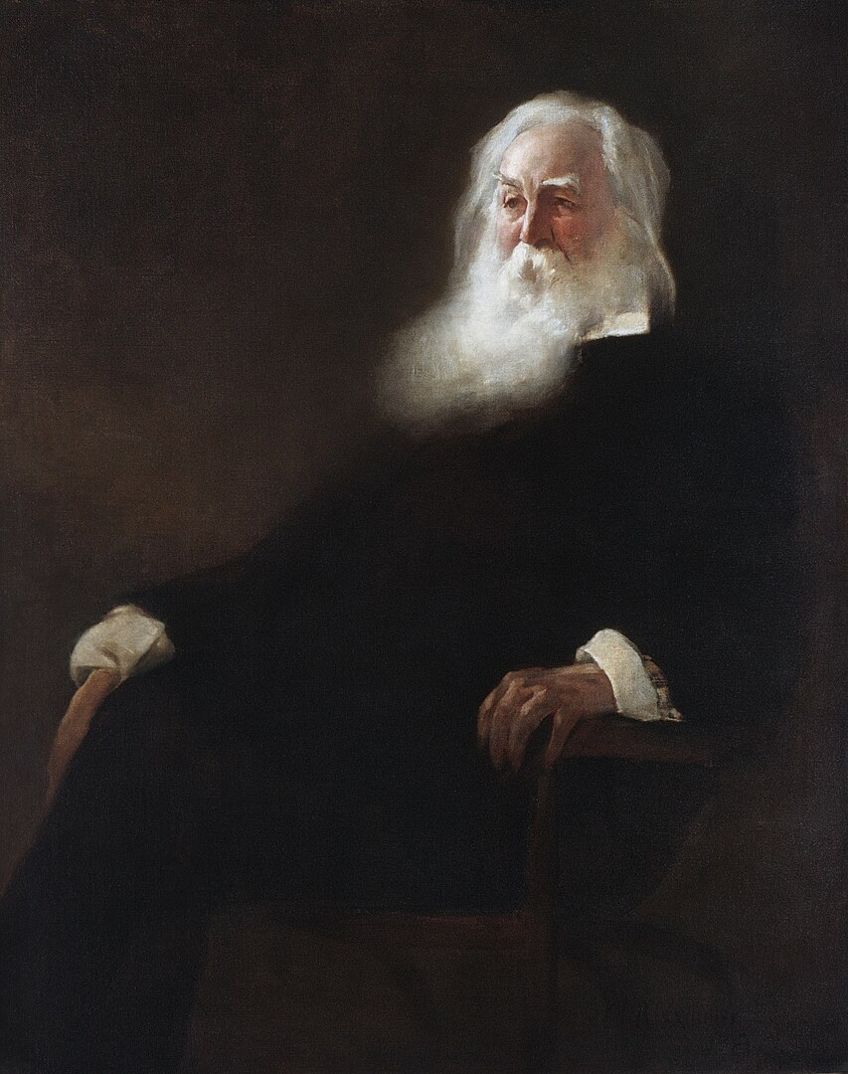
Emily Dickinson (1830 -1886)
| Nationality | American |
| When Did They Live | 1830 – 1886 |
| Famous Poem | Hope is the Thing with Feathers (1891) |
| Famous Quote | “Hope is the thing with feathers that perches in the soul – and sings the tunes without the words – and never stops at all.” |
| Interesting Fact | Only ten poems were published while Dickinson was alive. |
Emily Dickinson (1830-1886) is one of history’s most famous female poets and American authors. She never married and lived in her parent’s home for the rest of her life after she finished school. She never worked away from the comfort of her home and she never traveled. Dickinson wrote nearly 1,800 poems which were found and published after she passed away.
Her elliptical style of poetry is written in short stanzas, majority of which were quatrains with only the second and fourth lines rhyming.
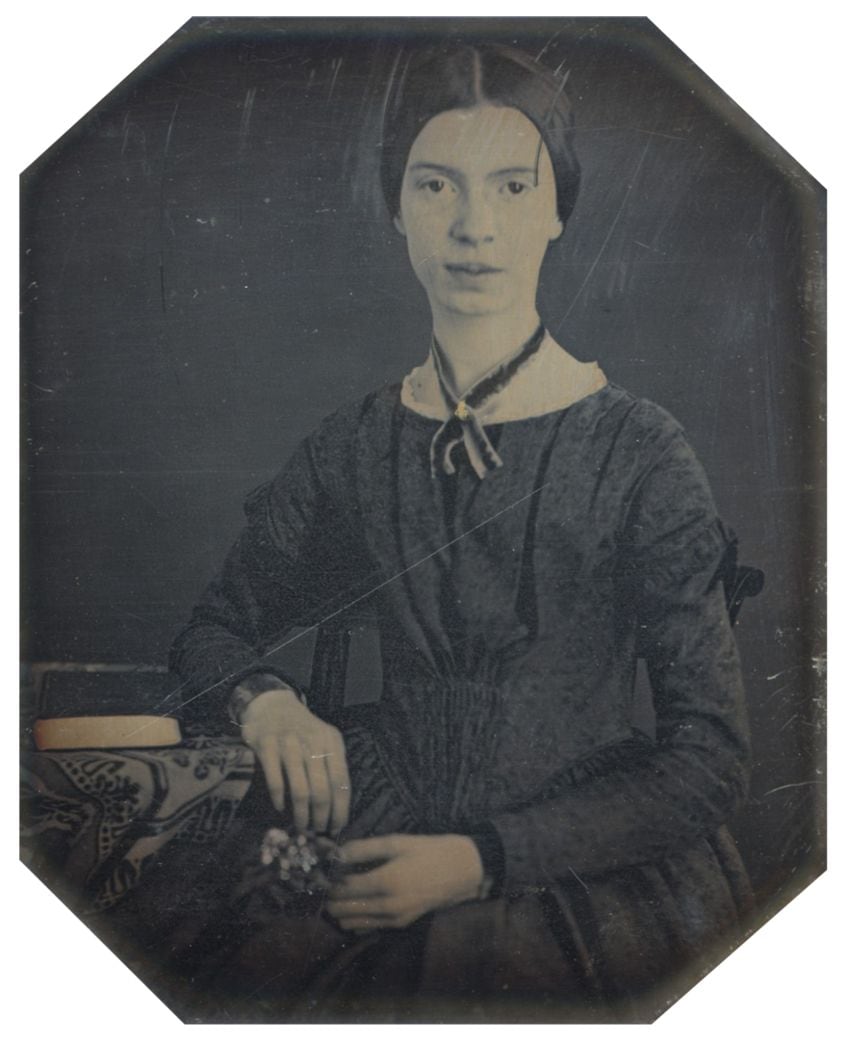
Oscar Wilde (1854 – 1900)
| Nationality | Irish |
| When Did They Live | 1854 – 1900 |
| Famous Poem | The Ballad of Reading Gaol (1898) |
| Famous Quote | “Be yourself; everyone else is already taken.” |
| Interesting Fact | Wilde’s lover’s father, John Douglas, tried him for sodomy after Wilde’s attempt to sue him for libel. Wilde went to Pentonville Prison for his sexuality. |
Oscar Wilde (1854-1900) was an Irish playwright and poet, known for his sharp wit in his writing and flamboyant sense of fashion. He was part of the movement called aestheticism, which emphasized the beauty of art, literature, and music over function. There were critics who disapproved of Wilde’s homosexuality, and found his writing to be superficial.
He was declared guilty of ‘sodomy and gross indecency’ in 1895 after arguing with his lover’s father, and was sentenced to two years of hard labor, which led to the decline of his health and career, but inspired his famous poem The Ballad of Reading Gaol (1898).
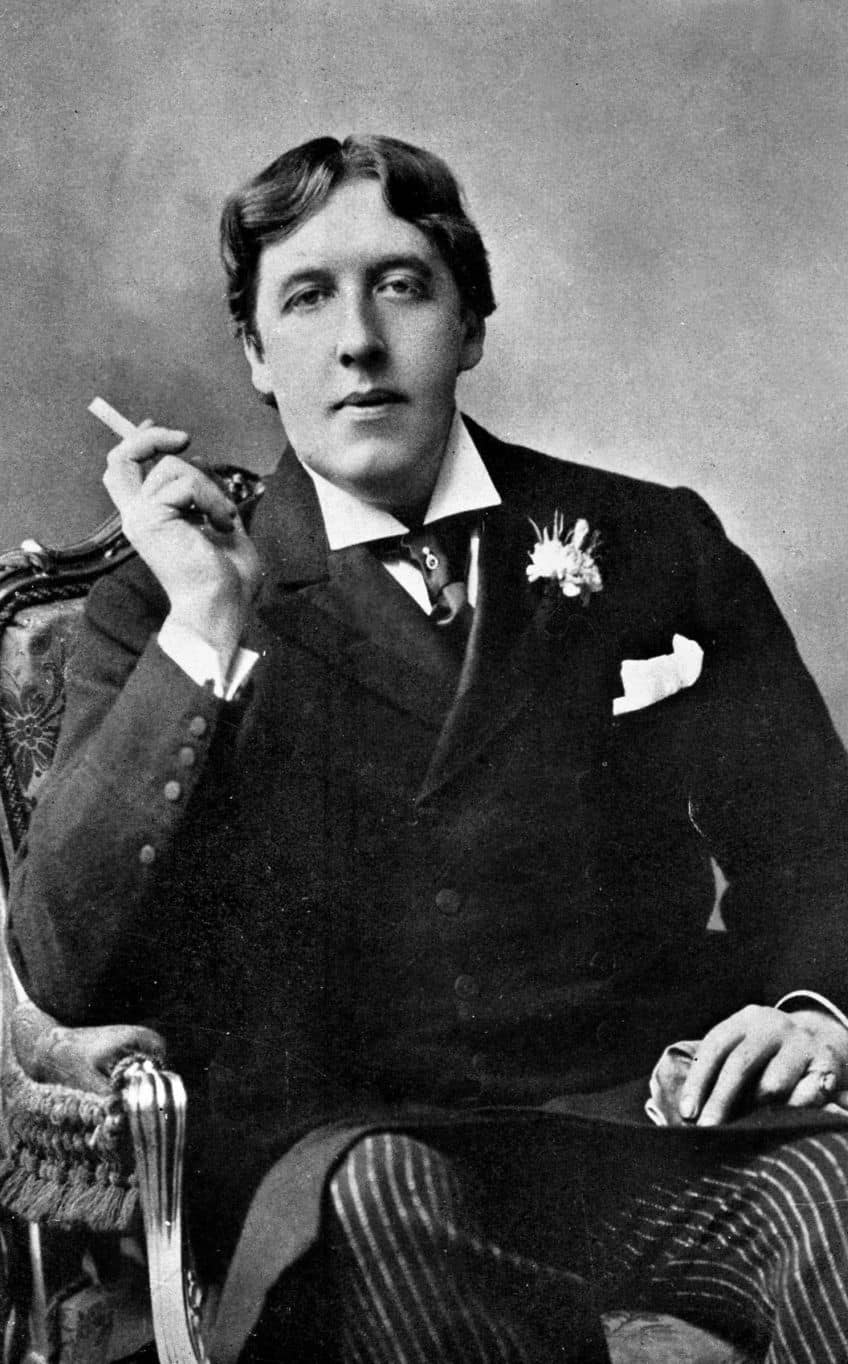
William Butler Yeats (1865 – 1939)
| Nationality | Irish |
| When Did They Live | 1865 – 1939 |
| Famous Poem | The Second Coming (1920) |
| Famous Quote | “I would spread the cloths under your feet: But I, being poor, have only my dreams; I have spread my dreams under your feet; Tread softly because you tread on my dreams.” |
| Interesting Fact | He was first a visual artist until he dedicated himself to poetry. |
The Irish poet William Butler Yeats (1865-1939) was also a dramatist, and a motivator behind the Irish Literary Revival. His father was a portrait painter, and thus he naturally fell into studying visual arts, during which his poems were first printed. He then devoted himself to writing, and later received the Nobel Prize in Literature in 1923. Yeats became the Irish Free State senator and was heavily involved in Irish politics about the same time that the Irish rose against the British in 1916.
His nationalism is expressed in his writing through Irish folklore and mysticism.
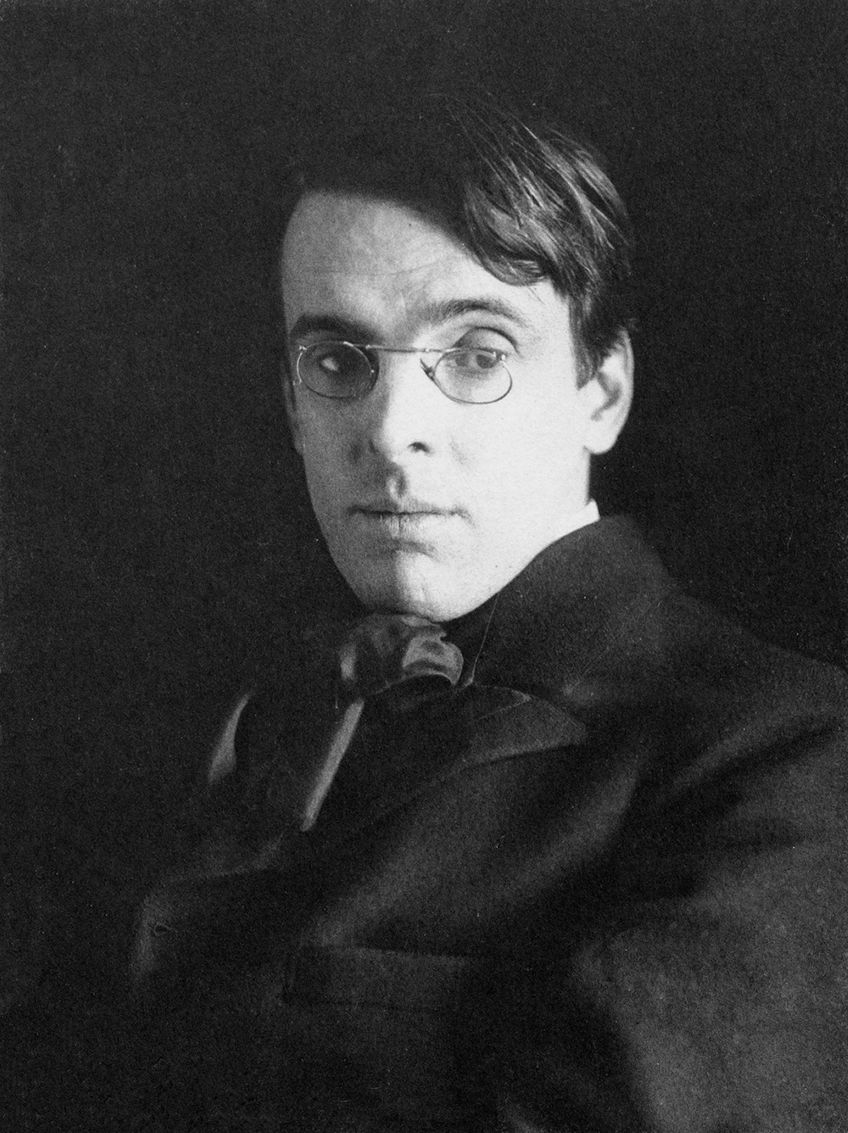
Robert Frost (1874 – 1963)
| Nationality | American |
| When Did They Live | 1874 – 1963 |
| Famous Poem | The Road Not Taken (1916) |
| Famous Quote | “Good fences make good neighbors.” |
| Interesting Fact | Frost left college twice; first dropping out of Dartmouth after two months, then from Harvard to support his family. |
The American poet, Robert Frost (1874-1963) had a unique and consistent style that stood throughout the radical changes that poetry underwent during his time. Before being published in his home country, Frost’s work was first published in England. He was quintessentially American and scenes of New England life were depicted throughout his poetry. Frost had a long and successful career, becoming one of the best poets of the 20th century, securing four Pulitzer Prizes.
He wrote and delivered a poem at John F. Kennedy’s (1917 – 1963) inauguration in 1961, and received the Congressional Gold Medal in 1962.
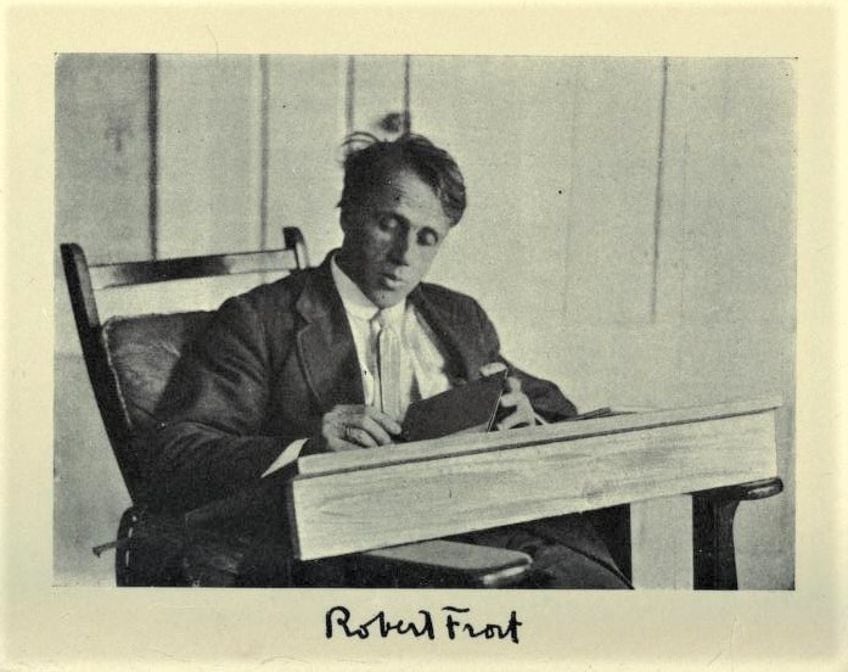
Langston Hughes (1902 – 1967)
| Nationality | American |
| When Did They Live | 1902 – 1967 |
| Famous Poem | The Negro Speaks of Rivers (1921) |
| Famous Quote | “Hold fast to your dreams, for without them life is a broken winged bird that cannot fly.” |
| Interesting Fact | Hughes studied chemistry and engineering at Columbia University because his father wanted him to study something more profitable than writing. |
Langston Hughes (1902-1967) was an activist, novelist, and one of the famous American poets that were involved in the Harlem Renaissance. By the time he became an adult, Hughes had lived in six different cities, and his adulthood was also very active in this way. He journeyed to West Africa, Europe, and Mexico while following his passion for writing. He had worked a variety of jobs as a sailor, a cook, a doorman at a nightclub, and a farmer. One of the earliest pioneers of jazz poetry, the rhythms of jazz and blues can be felt in Hughes’ writing, while he also used everyday language of the Black community of his time.
This style of writing has not always been popular, and was sometimes not well received by Black intelligentsia who wanted to distance themselves from the simple language of regular people.
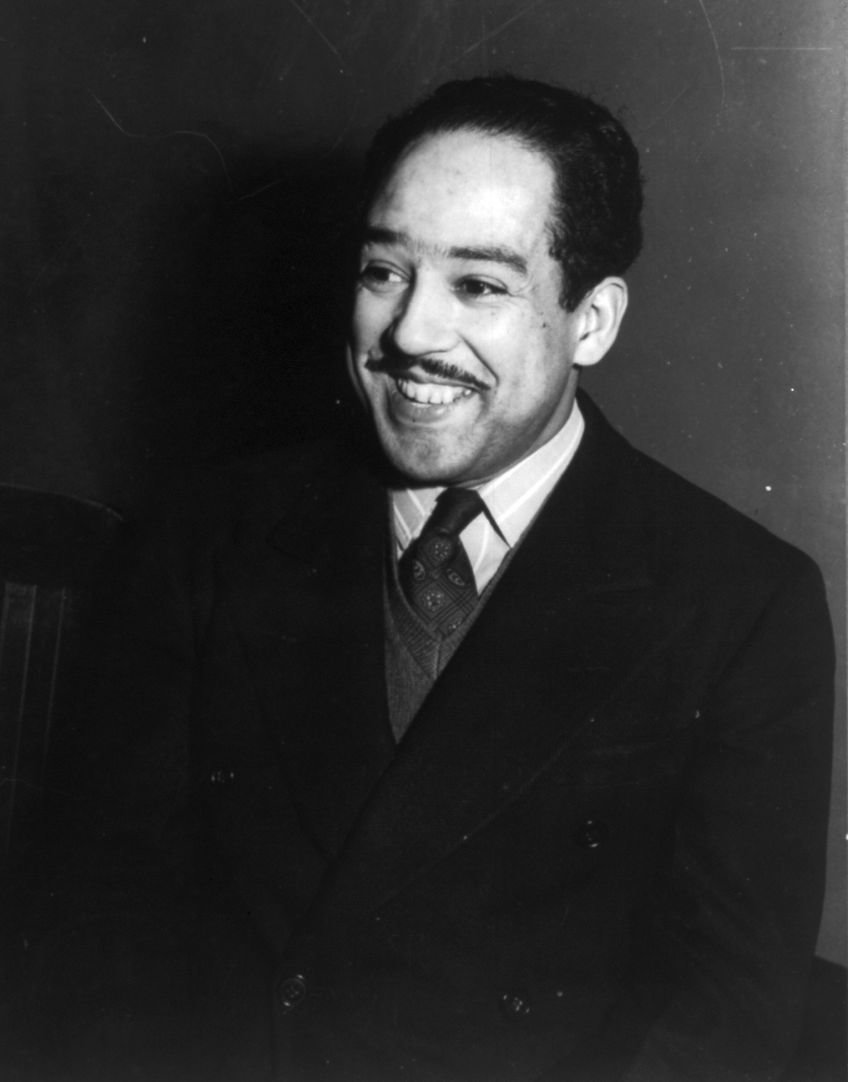
Roald Dahl (1916 – 1990)
| Nationality | British |
| When Did They Live | 1916 – 1990 |
| Famous Poem | The Three Little Pigs (1982) |
| Famous Quote | “A person who has good thoughts cannot ever be ugly. You can have a wonky nose and a crooked mouth and a double chin and stick-out teeth, but if you have good thoughts it will shine out of your face like sunbeams and you will always look lovely.” |
| Interesting Fact | 500 new words and names of characters were invented by Roald Dahl. |
The British writer, Roald Dahl (1916-1990) is renowned for his short stories and children’s literature, as well as his poetry. He and five other siblings were raised by his single mother after his father and sister died when he was three years old. Dahl did not attend university, but decided to go on a trip to Newfoundland with the Public Schools Exploring Society. He worked for Shell Oil after that in Dar es Salaam. At the start of World War II, he joined the Royal Air Force in Nairobi, and wrote his first piece of writing about the crash he survived in the Libyan desert. Dahl began writing stories for children whilst having five children of his own with his wife, Patricia Neal. Similar to his childhood, his life as a parent was struck with tragedy, as he lost his daughter to measles and his infant son suffered brain damage due to a car accident. Perhaps due to his experiences, Dahl’s writing is marked with a dark sense of humor, and is faithful to a child’s sense of magic, fairness, and retribution. Over three hundred million of Dahl’s books have been sold around the world and, although he started his career writing adult nonfiction and fiction books, has become known as one of the greatest children’s book writers of the 20th century.
Three of his books were devoted to only poetry, and his other books are also filled with poetry and songs.
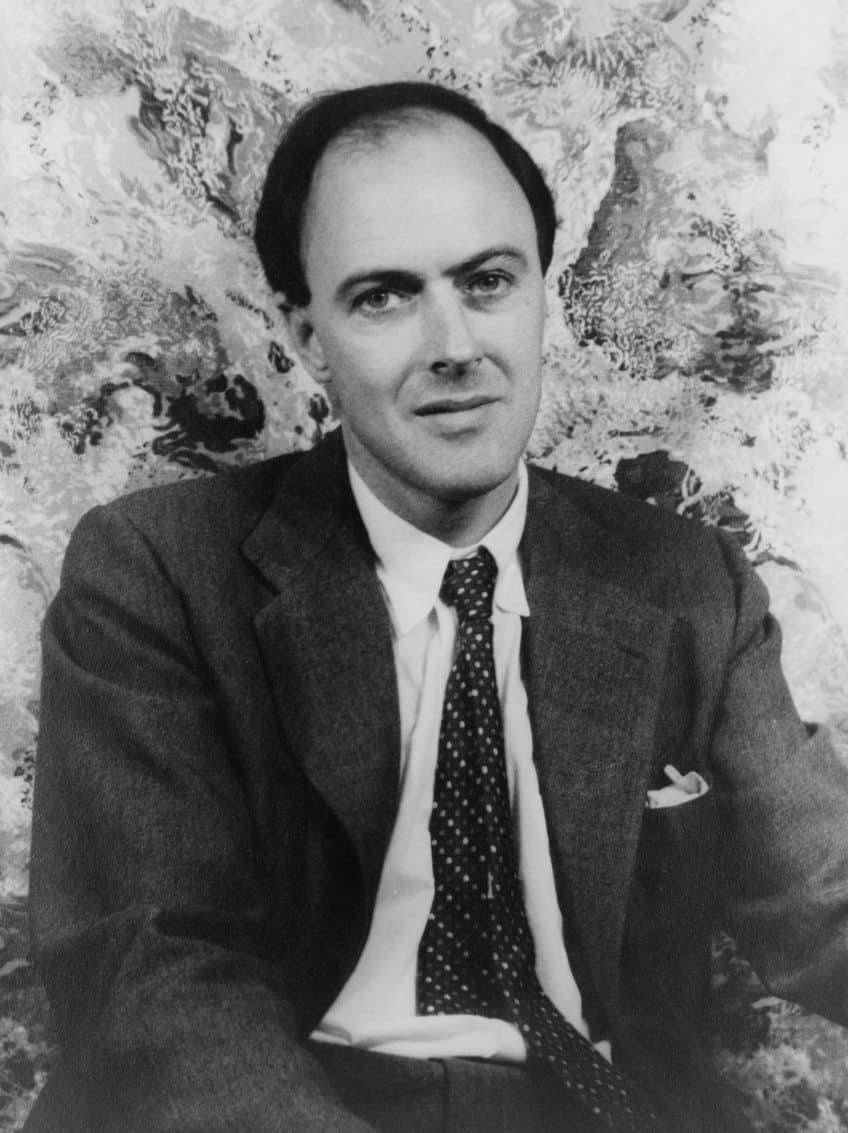
Maya Angelou (1928 – 2014)
| Nationality | American |
| When Did They Live | 1928 – 2014 |
| Famous Poem | I Know Why the Caged Bird Sings (1969) |
| Famous Quote | “Do the best you can until you know better. Then when you know better, do better.” |
| Interesting Fact | Angelou had a ritual of drinking sherry while she wrote. |
Maya Angelou (1928-2014) was from Missouri, and is famous for her poetry and her work as a civil rights activist, working alongside influential names like Malcolm X (1925-1965) and Martin Luther King Jr (1929-1968). Having lived a difficult and experienced life, Angelou faced discrimination, rape, and abuse. She left home at the age of 16 years old and became a single mother. She worked as a street car operator, a sex worker, and journalist, and did not give up on her talents for the arts. Angelou wrote many poems and essays, seven autobiographies, as well as being attributed with television shows, films, and plays. She worked until she passed away in 2014 as one of the most significant and impactful female poets in history.
In her life, she received more than 50 honorary degrees, and won many awards, including the Presidential Medal of Freedom (2010).
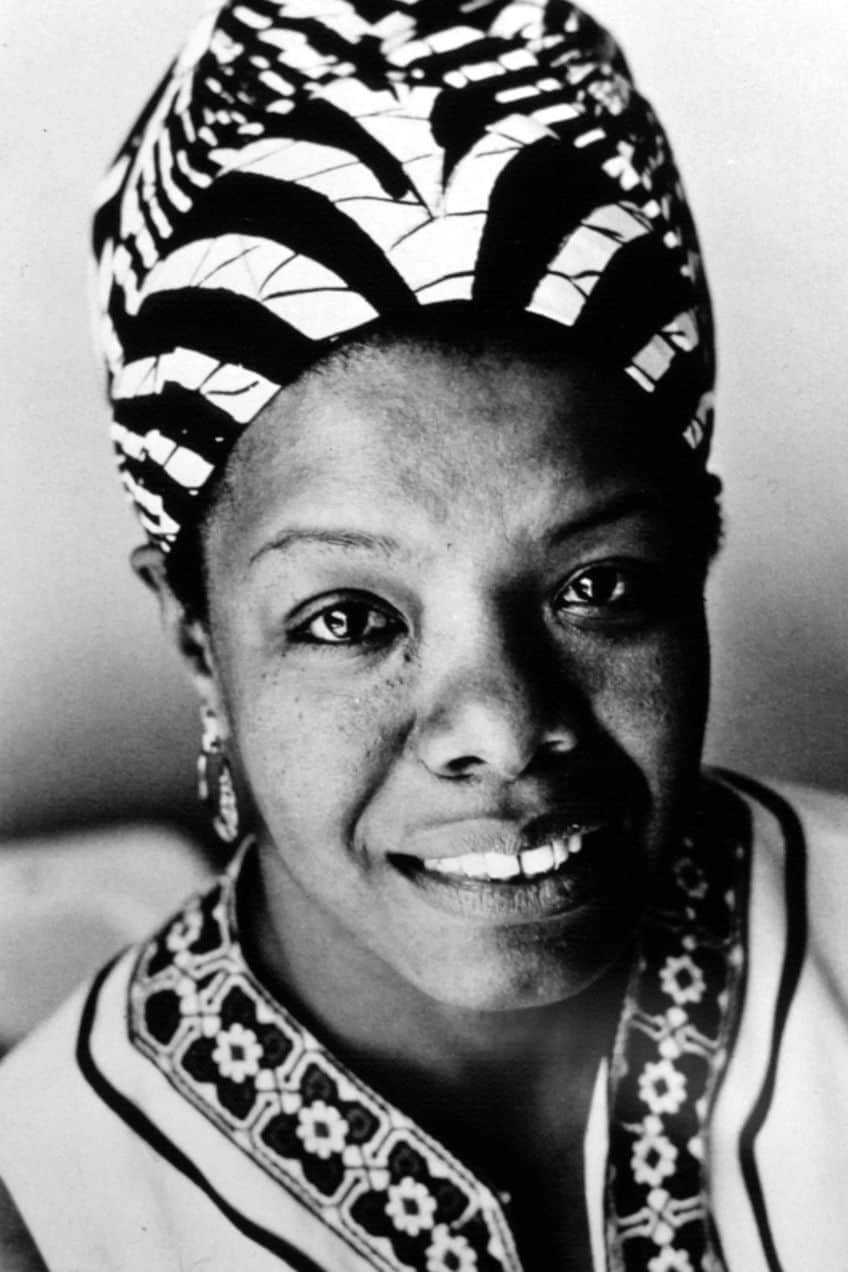
Sylvia Plath (1932 – 1963)
| Nationality | American |
| When Did They Live | 1932 – 1963 |
| Famous Poem | Lazy Lazarus (1965) |
| Famous Quote | “I can never read all the books I want; I can never be all the people I want and live all the lives I want. I can never train myself in all the skills I want. And why do I want? I want to live and feel all the shades, tones and variations of mental and physical experience possible in my life.” |
| Interesting Fact | Plath’s first poem was published when she was just eight years old. |
The American writer Sylvia Plath (1932-1963) showed promise as a poet from an early age. She studied in England after winning a Fulbright fellowship where she met her husband, Ted Hughes. He was a fellow poet with whom she had a stormy relationship, and for many years Plath battled with mental illness. Her struggles are recounted in her book, The Bell Jar (1963), a semi-autobiographical work. She took her own life in the same year that it was first published. In 1982, after her death, she was awarded the Pulitzer Prize for Poetry.
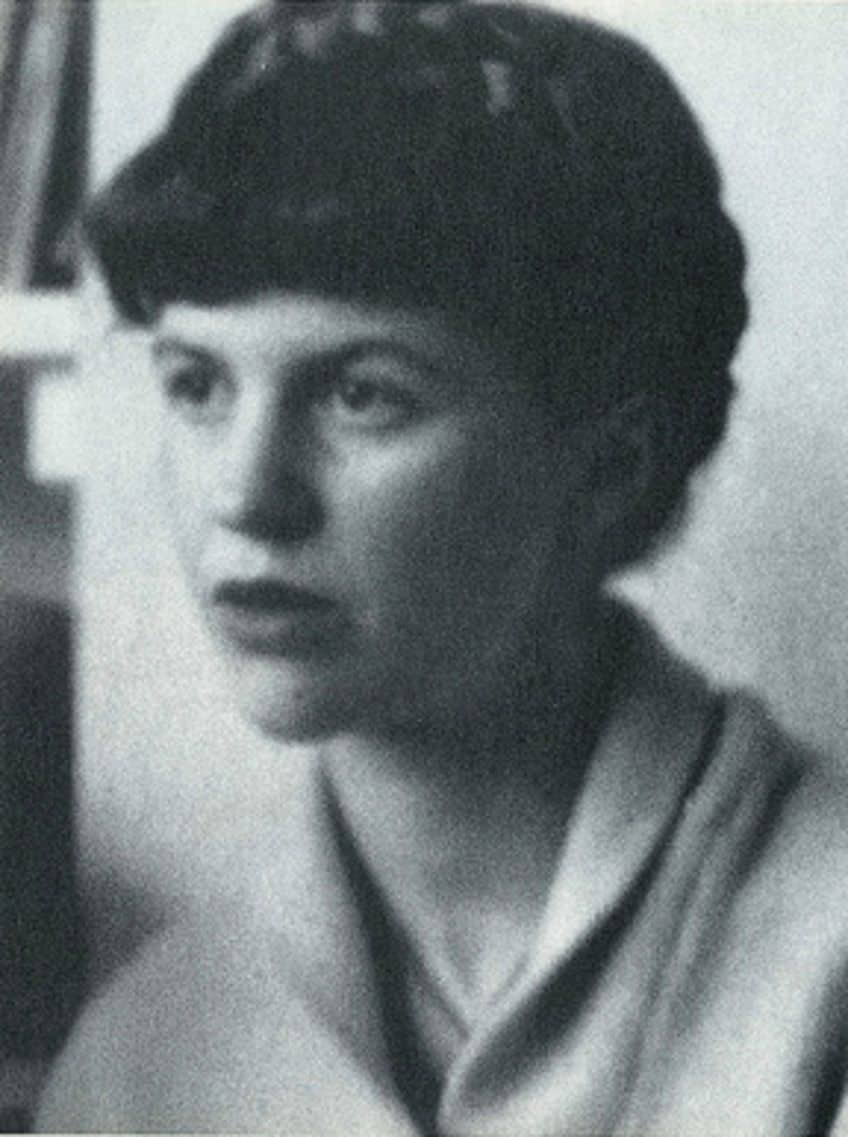
Thank you for reading our article on some of the most famous poets in history! We hope that you have been inspired by these popular poets just as much as we have, and that you will hopefully read and share some of their work.
Frequently Asked Questions
Who Is the Most Famous Poet in the World?
Many would argue that William Shakespeare (1564 – 1616) is the most famous poet in history. Although he built an incredible reputation based on his plays, he was first a poet. He is the most famous practitioner of the English sonnet, and having published more than 100 poems, he is one of the world’s most influential poets.
What Do Great Poets Have in Common?
There are a few things that great poets have in common. Firstly, their poems impact the emotions of people reading them. A poem can be well-written, but technical merits alone are not going to make a poem popular. Secondly, there is something original in their poetry that makes them stand out amongst other poets. Lastly, they also tend to have a passion and love for literature, which lends itself to their own work and shows not only a level of devotion to their own poetry, but to the work of others as well. They are dedicated to their work and pursue their love for poetry wholeheartedly and with tenacity.
Jaycene-Fay Ravenscroft is a writer, poet, and creative based in South Africa, boasting over 6 years of experience working in a contemporary art gallery. She earned her Bachelor of Arts degree with majors in Art History and Ancient History from the University of South Africa, supplementing her studies with courses in Archaeology and Anthropology. Driven by a passion for learning, Jaycene-Fay finds inspiration in symbology and the interconnectedness of the world. Trained to analyze and critique art, she is enthusiastic about delving into the meanings behind each artwork, exploring its ties to the artist’s cultural, historical, and social context. Writing serves as Jaycene-Fay’s means of researching, sharing knowledge, and creatively expressing herself. For artfilemagazine, Jaycene-Fay writes articles on art history with a focus on historical paintings.
Learn more about Jaycene-Fay Ravenscroft and about us.
Cite this Article
Jaycene Fay, Ravenscroft, “Most Famous Poets – The 16 Greatest Figures Throughout History.” artfilemagazine – Your Online Art Source. January 8, 2024. URL: https://artfilemagazine.com/most-famous-poets/
Ravenscroft, J. (2024, 8 January). Most Famous Poets – The 16 Greatest Figures Throughout History. artfilemagazine – Your Online Art Source. https://artfilemagazine.com/most-famous-poets/
Ravenscroft, Jaycene Fay. “Most Famous Poets – The 16 Greatest Figures Throughout History.” artfilemagazine – Your Online Art Source, January 8, 2024. https://artfilemagazine.com/most-famous-poets/.


